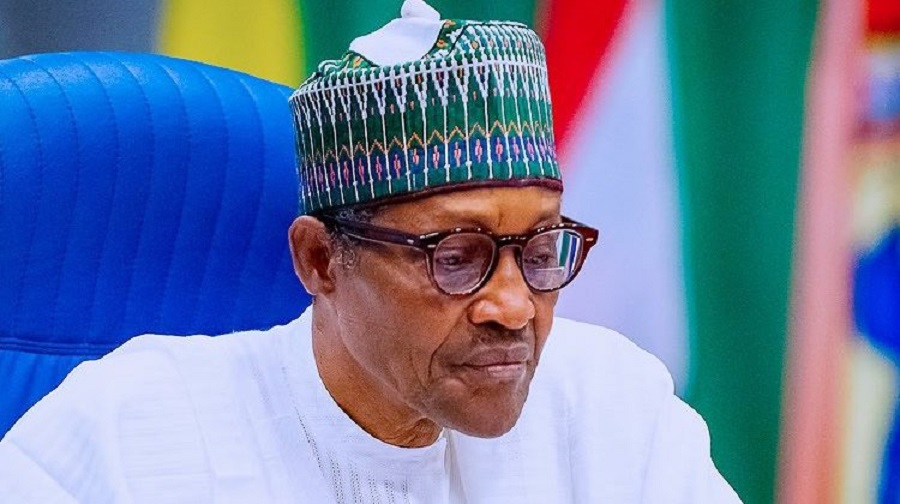Two decisions Buhari needs to make to rescue his legacy on the Nigerian economy
Nigeria’s inflation rate in 2015 was a single digit of 9.01%. Inflation today is 17.71%. As of 2015, Nigeria’s debt revenue stood at N8.8 trillion. Today, debt sits at N41 trillion. In 2015, petrol stood at N87 per litre. Today a litre costs N165. In 2015 when President Buhari assumed office, the dollar was exchanging at N198/$, today the exchange rate is flirting with the N600/$ zone. President Buhari assumed office and GDP stood at $486 billion, now GDP as of 2021 is $440 billion.
Make no mistake, the economy is beyond saving before May 2023 and even after 2023, as the spillovers of poor economic policies, recessions, oil price crashes, and a global pandemic would test the mettle of the new government. But the President can prepare a soft landing for the new government in two ways.
Everyone who understands the Nigerian economy understands its dependence on oil. Oil supplies 90% of the country’s foreign exchange and over 50% of the country’s revenue. However, in the last decade, Nigeria has failed to optimally enjoy its oil dividends as a result of two things that President Buhari can address.
- Fuel subsidies.
- Oil theft and vandalism in oil-rich regions.
The Oil Sector in Nigeria since its inception has been bedevilled with a myriad of problems. The problems are not limited to non-functional refineries, subsidy payment, lack of Infrastructure, and oil theft, amongst others. During the electioneering season in 2015, President Buhari made a series of promises to the oil sector which includes passage of the Petroleum Industry Bill (PIB) within one year if elected, getting refineries working, end fuel importation, among other promises. To fulfil his promises, Buhari appointed himself as Minister of Petroleum. However, it will be noted that the PIB bill was passed six years after, in 2021, but other promises remain unfulfilled.
According to reports, Nigeria is the only member of the Organization of Petroleum Exporting Countries (OPEC) importing refined petroleum. The higher crude oil price goes in the global market, the more we’re paying for PMS, and by maintaining this PMS subsidy the country, unfortunately, forgoes investments that will have used the monies into essential infrastructure, goods, or services that would have increased the overall productivity of the nation. So, this is Nigeria’s imbroglio.
Nigeria, over the last few months, has frequently failed to meet up with its OPEC quota. The West African country boasts of a 2.5 million barrel per day capacity but has not produced that number in over a decade. At the 29th OPEC and Non-OPEC Ministerial meeting, OPEC increased Nigeria’s production to 1.799 million barrels per day. With OPEC’s projection, Nigeria is supposed to be the largest oil producer in Africa. According to reports from the Nigerian Upstream Petroleum Regulatory Commission (NUPRC), crude oil production in Nigeria has dropped to 1.02 million bpd. This figure represents the lowest production it has gotten in two years.
Some of the reasons attributed to this poor performance point to supply disruptions, waning investments, and oil theft. Now, Nigeria has lost its place to Angola as Africa’s largest producer of oil and not for the first time in the last ten years. Another implication is Nigeria’s budget for 2022. The projected figure for oil production in the budget is 1.6 million bpd, which Nigeria has failed to meet, and currently falls short by almost 600,000 bpd.
With Buhari’s tenure coming to an end in less than 10 months, and his ineligibility to contest having served two terms, how can he save his legacy?
Removal of fuel subsidy
President Buhari was amongst prominent Nigerians who participated in the “Occupy Nigeria” protest in 2012, when the then President, Goodluck Jonathan, announced the Fuel Subsidy’s removal, which increased fuel prices from N65 per litre to N141 per litre. It’s high time Buhari realized one of his lasting legacies would be the removal of the fuel subsidy.
In 2021, Nigeria increased its Value Added Tax (VAT) from 5% to 7.5%. Nigeria earned N2.07 trillion in VAT and N1.896 trillion in Company Income Tax (CIT) in 2021. Despite earning N3.966 trillion accumulated, the figure is less than the N4 trillion budgeted for fuel subsidy in 2022. In a turn of events, the International Monetary Fund (IMF) warned that Nigeria’s fuel subsidy might hit a record high of N6 trillion in 2022 going at the current rate. Zainab Ahmed, the Minister of Finance, Budget, and National planning, has lamented that Nigeria is struggling to meet debt service obligations.
President Buhari should know that removing fuel subsidies is important for a prosperous Nigeria. As fuel prices continue to soar in the global market, so is Nigeria’s subsidy. The current price of oil is a mixed one for Nigeria. Despite earning from the exportation of crude oil, the country spends more on the importation of Petrol. The payment of subsidies has affected the development of human capital in Nigeria, it has also hindered Nigeria’s infrastructural growth, and borrowing has reached astronomical figures, among others. Removing fuel subsidies is one of the ways Buhari can save his legacy.
As the Minister of Finance, Zainab Ahmed echoed, “How many Nigerians own cars that are benefiting from this subsidy?”. In 2022, Nigeria cannot accurately confirm how much fuel it consumes as a country, thereby creating gaps for smuggling and round-tripping.
No doubt, subsidies have alleviated the cost of living for Nigerians but at a price – An increase in debt, no investment in the oil and gas sector, and no revenue for the country. Now that the cost of living is still high, Buhari should pull the life plug and end subsidies once and for all, and claim responsibility and the imminent hardship it will bring. Sacrificing himself for the future of Nigeria and saving the new government from the political and social contract of subsidies.
Stoppage of oil theft
In 2021, Nigeria produced 440.774 million barrels of Crude Oil and earned N12.4 trillion. However, the country lost 73 million barrels at N3.038 trillion, this means Nigeria lost 25% of its earnings to Oil theft. In Q1 of 2022, the country exported N5.66 trillion worth of crude oil but lost N434 billion to theft. Oil theft over the years has been inimical to the growth of the oil industry in Nigeria.
Earlier in the year, Tony Elumelu, Chairman of United Bank of Africa, posted on Twitter that Nigeria loses 95% of its oil production at Bonny Terminal to oil theft. His claim was corroborated by the Group Managing Director of NNPC when he stated that Nigeria only gets 3000 barrels out of 239,000 barrels injected into the pipeline from Bonny Terminal. He also noted that Nigeria lost $4 billion in 2021, and has lost $1.5 billion in 2022 to oil theft. He concluded that oil theft has forced oil production to shut down at the terminal, which also affects Nigeria’s projected production.
The mode of operation involving oil theft is through Illegal modular refineries, which refine the stolen crude oil, and then transported it in cans, and kegs to different parts of the country. In January 2022, Rivers State governor, Nyesom Wike, ordered a crackdown on illegal refineries in the state. Navy operatives who are meant to protect pipelines, waters and have also been accused of aiding oil theft.
With Nigeria’s economy hinged on oil, President Buhari can save his legacy by ensuring oil theft is a thing of the past. As a former military man, he should deploy his wealth of experience in uncovering the heist going on in the oil regions. Losing 200,000 barrels per day comes at a great economic cost to a country that pays a huge sum for fuel subsidies. President Buhari should ensure that pipelines are given adequate security, technology should also be heavily deployed to provide surveillance of pipelines. Also, the Navy should be adequately equipped to protect pipelines and host communities should not be neglected as they also are important in the oil and gas industry.
Recommendations
With 8 months left until the 2023 general elections, Buhari can channel all his efforts in the oil industry in the following ways;
- Put an end to subsidy after the Presidential elections so that the political risks of a protest/hardship do not prove counterproductive to his party’s campaign.
- Provide support for the running of the Dangote refinery and prioritize it becoming operational so the country has at least one functioning refinery to reduce dependence on oil importation before his tenure ends.
- Deploy security agencies to the regions where oil theft is organized, act on intelligence, provide aerial support through the Airforce, cooperate with stakeholders, and rejig the Navy team as they have been complicit over the years in putting an end to oil theft.
- Set up a team to accurately find out how much fuel Nigerians consume to eliminate smuggling and inflated subsidy payments.
- Ensure the Petroleum Industry Act is fully implemented with NNPC operating as a limited liability company as soon as possible.
- Bonus point: Secure funding and financing for Nigeria’s planned 4000 km pipeline to take Nigerian gas – the largest reserves in Africa — via Morocco, then onto Europe.
The consequences of all this would come at a price in the short term but will safeguard the country’s economic future as the country would increase its oil output and reduce its fiscal burden.





